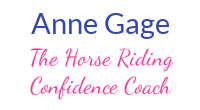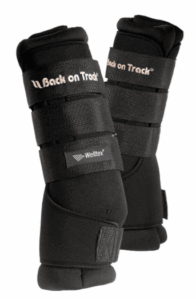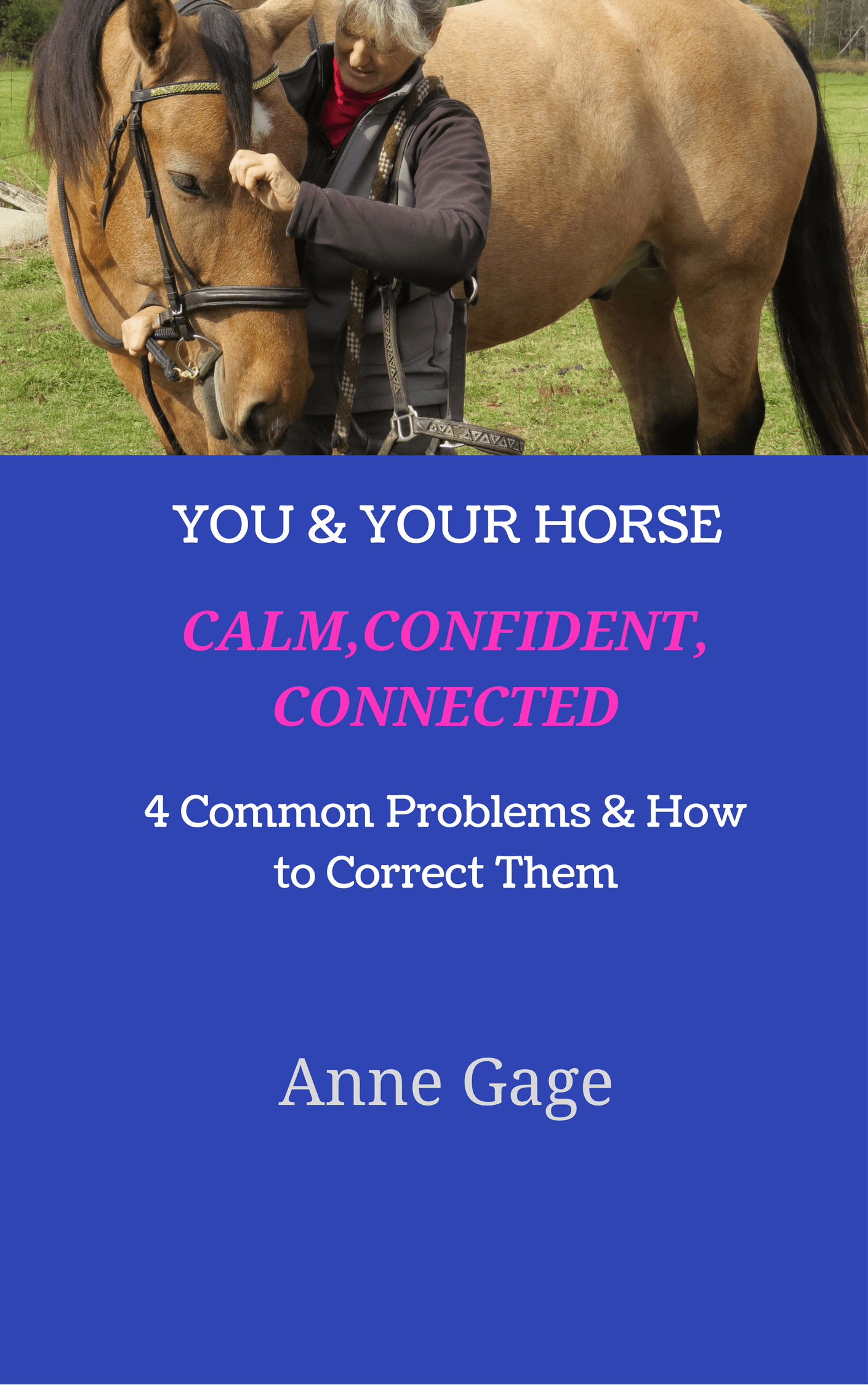A Horse Behaving Badly - it can feel frustrating, scary or out right dangerous - for you, your horse and others around you.
Dangerous behaviour does need to be addressed.
But, it's far too common in the horse world to simply try to stop the behaviour - blaming the horse for being lazy, stubborn or disrespectful - without looking for the real cause.
There really is a good reason for your horse's bad behaviour.
I'm sharing the experience of one of my clients that illustrates the importance of getting to the root cause of the behaviour and then finding the best solution to resolve it.
Sometimes I really don't like it when I'm right
Honestly. Sometimes it really sucks.
Like today when I received this text message from one of my clients:
"Bad news from our veterinarian. Thinks she can get Trixie through another "light working" season while we find a new riding horse. Means regular exercise, shoes, drugs, ointments and permanent grazing muzzle. Thx for recognizing how serious things had become for Trixie. We are pretty sad about it."
I'm just sad. For my client and for her mare.
This all started last summer when Trixie showed some - for her - unusual (and quite dramatic) behaviour. Not wanting to go forward on the lunge line and then having histrionics when she did. Striking and bucking.
I could have assumed she was "avoiding work", being "disrespectful" or having a "temper tantrum".
Phrases you probably hear all too often in the horse world.
If I had that perspective, I would have picked up a whip and "made her" work, move her feet or not let her stop until her saddle pad was soaked with sweat.
But, I didn't - and never would - do any of those things. I take a different perspective.
Take A Different Perspective
I told my client I was concerned that there was a physical cause behind this new behaviour.
We felt her feet and legs - no heat, swelling or obvious sign of a problem.
I palpated her back and she reacted to light pressure above her shoulder.
She had recently had a new saddle professionally fitted, so I took poor saddle fit off the list of possibilities.
I suggested my client book an appointment for her mare with an equine massage therapist.
The therapist confirmed the sore shoulder AND diagnosed the root cause - a problem in her foot.
Next step, a thorough examination by the veterinarian.
Diagnoses - there was a minor problem with the front foot which had indeed caused the shoulder soreness.
But, there was also a much more serious problem with the suspensory ligaments in her hind legs. And it would degenerate over time.
Not great news, but with a farrier experienced with this type of situation, shoes, drugs and a change to her diet, the prognosis was that she might be ok for light riding for at least a couple more years.
My client followed all the veterinarian's advice closely. And she even purchased a pair of Back On Track Therapeutic leg wraps. With this program, Trixie showed improvement
We were just getting Trixie back to work after the winter break. She lunged just fine at the walk. But once again, when asked to trot she showed resistance.
There was no dramatic behaviour this time. She just didn't want to trot. When she did, she half-heartedly trotted a few steps then went back to walking.
Again, no heat or swelling. No outward signs of a physical problem. But, I stopped the session and suggested that my client have her veterinarian re-assess Trixie.That happened today. And, so the bad news.
Fortunately, my client has a hobby farm. So, she can continue to keep Trixie as a pasture ornament as long as she is comfortable.
She can still enjoy her company - just hanging out, hand walking her to graze for a few minutes (a nice break from the grazing muzzle) and grooming her.
Listen To Your Horse's Behaviour - Always
Here's the thing for you to take away from my client's situation...
really listen to your horse's behaviour.
Really, really listen.
Because it's the only way your horse has of communicating with you.
Her behaviour IS her communication.
Avoid labeling the behaviour with statements like she's just:
- "being stubborn"
- "having a temper tantrum"
- "trying to get out of work"
- "doing it to annoy me"
- "has my number"
- "being disrespectful"
Listen. Look deeper. Find the underlying cause.
It may not be something physical (but that should always be eliminated first).
It may be a miscommunication (no, she doesn't always know or understand what you want - even if she's done what you're asking for 100 times before).
It may be she's been upset and stressed out by any number of things - another horse, the weather, a change in feed, a change in environment, the vaccinations she got yesterday...
Check out this short video to learn a simple and fun way to reduce your horse's stress and lead to a happier, healthier, and more confident partnership.
When you look deeper and find the root cause of the problem, then you can come up with the best way to move forward.
A way that helps you and your horse together feel safe, connected, and confident.



